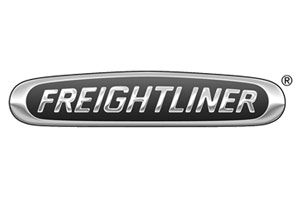Key Takeaways
-
By staying on top of your maintenance, you can avoid typical diesel engine issues like vibration, hard starting, or overheating. Without proactive care, even the best diesel engines won’t last long and will lead to expensive damages.
-
Look for misaligned components, bad mounts, or imbalanced rotating parts. If left unchecked, these vibration problems can cause permanent mechanical failure.
-
Fix hard starting by understanding fuel delivery systems glow plugs & other factors that cold weather has on engine performance.
-
Avoid emissions system failures- Monitor EGR valves
-
Clean DPF filters
-
Meet environmental regulations and avoid costly fines.
-
-
Keep fuel clean to avoid introducing diesel engine issues. Consider water a contaminant and repair any leaks as soon as possible to protect your engine.
-
Conduct periodic diagnostics to identify contributing factors, such as sensor malfunction, electrical issues, or oil dilution, keeping your engine running smoothly and dependably.
Diesel engine issues can frequently be traced back to simple things such as clogged fuel injectors, worn-out glow plugs, or dirty air filters. These issues can lead to performance, fuel economy, and premature engine failures.
Taking steps, like changing the filters and having key components inspected, can avoid the majority of these issues. In colder climates, problems such as hard starting can occur because of low-quality fuel or lack of engine pre-heating.
With consistently high-quality diesel and regular scheduled maintenance, engine reliability is better. Most of these issues are associated with aging components, so early identification is necessary to prevent expensive repairs.
By understanding these three key factors, you can better identify and correct issues before they become a problem and keep your diesel engine performing at its best.
Common Diesel Engine Problems
Though diesel engines have a reputation for being long-lasting and hard-working, they present a unique set of issues that can harm performance and longevity. By knowing these common diesel engine problems, you can catch problems during their early stages and keep your engine running smoothly. Here are a few other common diesel engine problems and their likely causes.
1. Vibration Issues
Vibration issues in diesel engines are more common because of their high compression ratios and heavy-duty components. Misalignment of moving components like crankshafts or pulleys can cause excess tension that results in uneven wear.
Broken mounts can no longer absorb typical engine movement, which can cause added vibrations that could damage other sensitive components such as the cylinder head. Imbalanced rotating components, including flywheels, can increase mechanical stress, which can lead to permanent damage.
2. Hard Starting Challenges
A no-start condition usually is a result of issues with fuel delivery, like clogged filters or a pump going out. In cold weather, glow plug failure makes starting difficult, and diesel fuel thickening from the cold increases the chance of a no-start.
When startup is delayed or startup fails completely, it can disrupt daily operations significantly.
3. Emissions System Malfunctions
Diesel engines are required to adhere to stringent environmental regulations and emission systems are at the heart of this requirement. EGR valves are prone to buildup of soot and carbon, clogging their function.
Plugged Diesel Particulate Filters (DPF) block off the diesel exhaust and increases back pressure on the engine causing high exhaust emissions. Monitoring emission levels ensures compliance with environmental regulations while maintaining engine efficiency.
4. Fuel Contamination Risks
Diesel fuel is more susceptible to contamination than gasoline, mainly because of its greater viscosity. Water, usually introduced through condensation in storage tanks, is detrimental to engine components.
Contaminants, like dirt or microbial growth, block filters and injectors, causing unwanted performance problems. With frequent fuel quality testing and immediate repairs on leaks of any kind, you can help keep your engine running great.
5. Sensor Failures and Malfunctions
Engines are increasingly dependent on sensors to provide accurate data. Exhaust Gas Temperature (EGT) sensors, which often fail due to heat or vibration, can provide inaccurate readings, which impacts engine performance.
NOx sensors, which are essential for emissions control, are prone to failure, and failed pressure differential sensors result in false diagnostics, making repairs more difficult.
6. Overheating Problems
Overheating is a major issue. Cooling system leaks, very commonly from old hoses or gaskets, lower coolant levels and cause the engine to run hotter.
Cooling stacks that are low efficiency do not cool enough heat away. Thermostat or radiator failures make it impossible to control the heat within the engine, which can lead to catastrophic engine damage if not repaired.
7. Electrical System Faults
Electrical issues interrupt the function of an engine. Wiring that’s frayed or damaged disrupts the flow of power, and starter or alternator problems can make starting up a challenge.
Weak batteries have difficulty powering necessary auxiliary components, affecting performance as a whole. Regular inspections can prevent these problems from occurring.
8. Oil Dilution Concerns
Oil dilution is when fuel seeps into engine oil, making it less effective at lubricating components. Extended dilution contributes to wear and oxidation, significantly reducing engine life.
Keeping a close eye on your oil quality and oil consumption is key to avoiding some very expensive repairs.
9. Injection System Malfunctions
Fuel injection systems work at astronomical pressures so they are prone to failures. Injectors won’t produce the amount of power needed, and an injection pump failure will prevent fuel from being delivered to the engine.
Proper maintenance makes sure your diesel engine performs steadily and doesn’t experience a loss of power.
10. Head Gasket Failures
The head gasket is subject to constant heat cycles, so it is prone to deterioration over time. Coolant leaking or white smoke coming from the exhaust is a sign of failure.
Regular preventative maintenance like keeping an eye on engine temp will give gaskets a longer life and create an overall more reliable system.
Causes of Diesel Engine Vibration
Diesel engine vibration is a serious issue that can have detrimental effects on performance, durability and overall efficiency. By knowing what causes vibration and taking corrective action at the first sign through routine maintenance, you can help maintain your engine’s performance and avoid costly repairs.
Misaligned Engine Components
Misalignment usually occurs due to installation issues or from wearing down over time. When engine components fall out of alignment, vibrations are introduced as forces are distributed unevenly.
For example, degraded or broken mounts may allow the engine to shift, increasing or even causing vibrations. Imbalanced rotating elements, like a poorly aligned crankshaft, create unwanted stress, causing accelerated wear and tear.
One 2002 Peterbilt 379 case study found that replacing a failed injector resulted in a 130% decrease in vibration. Routine inspections can catch these problems before they escalate, prolonging the life of the engine.
Worn or Damaged Mounts
Damaged, cracked, or worn engine mounts fail to maintain operational stability, permitting vibrations to pass through the balance of the vehicle. These mounts cushion and absorb energy created while the engine operates.
When worn, this energy transfers directly to the operator, creating discomfort and accelerated wear. Cold weather increases the frequency of mount failures because cold temperatures increase stiffness in the materials.
Fixing mount problems sooner rather than later avoids larger problems down the road. Issues such as misfires and incomplete combustion frequently result from incorrect valve clearance settings or injector malfunctions.
Imbalanced Rotating Parts
Rotational imbalances from the crankshaft, pistons, and flywheel all create vibration issues through rough operation. For instance, piston impacts with the cylinder liner produce friction, which in turn causes vibration and wear.
Unmaintained exhaust systems, like blocked EGR valves or DPF filters, restrict airflow, resulting in performance drops. Sensors subjected to harsh conditions—including temperatures in some cases well above 871°C—are prone to failure, making diagnostics even more difficult.
Proactive monitoring helps you stay ahead of emissions compliance regulations while protecting the health of your engines.
Reasons for Hard Starting Diesel Engines
We all know diesel engines are built to be tough and efficient workhorses, but they need a little TLC to start up easily and run great. Hard starting problems can stem from various underlying causes, frequently linked to fuel quality, sensor malfunctions, or environmental conditions. Grasping these issues is one of the main keys to fixing and avoiding these aggravating difficulties.
Fuel Delivery Problems
Fuel contamination is a common reason, with water as the top offender. Even tiny quantities of water can cause corrosion of the fuel system and combustion disruption. Maintaining fuel cleanliness is crucial, because any impurities can clog injectors and severely impact performance.
Maintaining a routine leak check and repair program reduces the likelihood of contamination. Mechanical injection may be forgiving, but modern injection systems such as common rail or HUEI require very specific diagnostics and precision repairs.
Faulty sensors, such as EGT (exhaust gas temperature), NOx, or pressure differential sensors, further complicate delivery, causing inefficiencies or emissions failures.
Glow Plug Malfunctions
Glow plugs are essential to cold starting an engine as they preheat the combustion chamber. Problems, such as leaks in the cooling system, can cause overheating, damaging these important components.
Inadequate cooling stack efficiency or failed thermostats and radiators can worsen the issue, leading to intermittent starts. Keeping up with routine maintenance will help your engine manage heat more efficiently and your glow plugs operate more effectively.
Cold Weather Effects
Cold weather brings its own set of diesel engine starting issues. High number of wax particles, Diesel fuel will naturally gel in the cold, preventing fuel flow.
Severed or damaged wiring makes electrical connections impossible, and failing starters or alternators can’t produce the cranking needed to start the engine. Checking battery health is just as critical.
Cold weather is tough on battery capacity. Progress in technology, such as the advent of particulate filters, means that diagnosing these issues frequently involves specialized tools.
Understanding Emissions System Failures
Diesel emissions systems are critical for reducing harmful diesel pollution. They do an excellent job of removing particulate matter and nitrogen oxides (NOx). When these systems fail, often due to wear and tear, they lead to major engine performance problems, higher emissions, and expensive repairs. Tackling these issues will take a clear knowledge of what’s causing these problems and a willingness to invest in ongoing upkeep.
Oil Dilution and Engine Health
Oil dilution happens when diesel fuel contaminates the engine oil, making it less effective at lubricating essential engine parts. This can cause excessive wear on components such as pistons and bearings. The usual culprits are things like incomplete combustion or broken injectors.
As time passes, this diluted oil is oxidized, causing sludge to form, further impacting engine health. Regular oil analysis and continuous monitoring can address these issues before they become catastrophic. Violation of the higher oil consumption rates, for example, can be a sign of other issues that need to be addressed quickly to prevent severe, long-term harm.
EGR Valve Issues
The Exhaust Gas Recirculation (EGR) valve is critical for recirculating some of the exhaust gases back into the combustion chamber to lower NOx emissions. Injector failures, due to normal wear or clogging, can throw a wrench in this system, dirtying the combustion process and robbing power.
Likewise, a malfunctioning injection pump can’t inject the proper mix, leading to uneven fuel delivery and even more strain on the engine. Symptoms, like less acceleration power or a shaky idle, need to be identified quickly. Regular inspection and maintenance of emissions systems will help provide better performance and fuel economy.
DPF Blockages and Challenges
The Diesel Particulate Filter (DPF) traps soot particles and burns them off through a process called regeneration, turning them into harmless CO2 and water. When the DPF cannot regenerate because of over-fueling or intake manifold coking, it becomes clogged, restricting exhaust flow.
This could lead to excessive fuel use, loss of performance, and even a head-gasket failure. For example, a blown gasket, usually noticeable by white smoke or coolant disappearing from the reservoir, can quickly turn into catastrophic engine failure. Regular preventative maintenance, such as cleaning the DPF and making sure the fuel system is functioning properly, will prevent damage to both DPF and gaskets, prolonging their lives.
Excessive Exhaust Emissions
Implementing proactive maintenance not only reduces the cost of repairs, but increases the longevity of the engine itself. Routine inspections and preventative maintenance of the DPF, DOC, and SCR systems can help keep them performing properly.
Selective Catalytic Reduction (SCR) systems use the magic of AdBlue to turn NOx into nitrogen and water vapor, which are both benign substances. This process greatly reduces harmful emissions. The Diesel Oxidation Catalyst (DOC) increases this process with chemical reactions promoted by precious metal coatings.
Maintaining these systems helps to ensure they perform well, but it takes a step toward ensuring we maintain environmental compliance.
Preventing Fuel Contamination
Fuel contamination is the most prevalent cause of diesel engine issues. Overcoming this challenge means knowing how contamination occurs and taking steps to ensure the integrity of fuel is upheld.
Water as a Contaminant
Water can easily enter diesel fuel through condensation in equipment storage tanks or during refueling. Its presence leads to corrosion, injector damage and microbial growth including the infamous diesel bug.
These microbes can quickly explode in numbers, doubling in size every 20 minutes, leading to costly clogs and sludge. Using a fuel-water separator is the best means of contaminant removal and prevention, so it’s the solution that’s most effective.
With best practices, like storing tanks full to reduce moisture formation, water contamination can be greatly reduced.
Impurities and Cleanliness Importance
Contaminants, such as dirt and other fine particles, can cause irreversible damage to critical engine components. It’s important to invest in high-quality filters.
A 5-micron filter with a 98% efficiency rating stops the majority of all particles. To increase protection even more, a secondary 2-micron filter is included.
Regularly inspecting and replacing filters, even before their scheduled change date, makes sure that the contaminants aren’t allowed to build up over time. Partnerships with trusted fuel retailers are an important element in preventing fuel contamination, since legitimate retailers follow rigorous quality controls to keep fuel pure.
Identifying and Fixing Fuel Leaks
Leaks in the fuel system create fuel spills that waste diesel and increase the risk of contamination. Even small leaks are enough to let air and water in, setting the stage for microbial colonization and particle infiltration.
Routinely inspecting the entire fuel system for leaks and promptly addressing any issues will help protect the integrity of your fuel. Proper storage is key to protecting diesel fuel quality.
Since diesel has a shelf life of around one year, using clean, sealed, covered containers reduces the risk of contamination.
Diagnosing Sensor Malfunctions
Modern diesel engines are much more sensor dependent to keep them more efficient and lower emissions. These sensors don’t just work in the background; they’re constantly delivering data in real-time, allowing the engine’s onboard diagnostic (OBD) system to identify and correct potential problems. When a sensor fails, it can result in higher emissions, worse performance, and even engine failure.
Below, we’ll demystify sensor malfunctions and how they’re diagnosed.
Failing EGT Sensors
EGT sensors are used to capture the temperature on exhaust gas. They are key to keeping our emission systems (like the diesel particulate filter or DPF) working effectively. Faulty EGT sensors can flag overheating or incomplete regeneration of the DPF, resulting in clogs.
Typically, technicians will rely on OBD tools to pull fault codes or use a thermometer to compare temperature readings across the exhaust system. For example, if one EGT sensor shows a much lower temperature than the others, you can assume it has failed.
Visual inspections for soot buildup or wiring damage can help identify the malfunction.
NOx Sensor Problems
Nitrogen Oxide (NOx) sensors act as emissions sensors, allowing vehicle manufacturers to limit emissions and comply with federal standards. When a NOx sensor fails, it produces wildly inaccurate measurements. This may cause the SCR system to function inappropriately.
Fault codes like P2200 or P2202 frequently point to NOx sensor malfunctions. Multimeters in the hands of a competent technician can test voltage signals and exhaust gas analysis can confirm discrepancies.
Technicians need to check the entire SCR system for urea crystallization or leaks, which can sometimes produce the same symptoms as a sensor failure.
Pressure Differential Sensor Faults
Pressure differential sensors are used to gauge the pressure differential before and after the DPF, which aids in detecting blockages. A defective sensor can trigger a false need for cleaning or replacing the DPF. Common symptoms are faulty fault codes such as P2453 or an unexpected decrease in fuel economy.
Technicians can use diagnostic tools to compare pressure readings or inspect for blocked hoses. For instance, if a sensor hose is clogged, less air will flow through causing incorrect data to be taken.
Regular maintenance of the DPF and all the components associated with its regeneration can often prevent these complications.
Troubleshooting Overheating Engines
Overheating diesel engines are a serious, yet all too prevalent, problem that requires diligent troubleshooting. Since 70% of diesel engine failures are attributed to overheating, catching the root cause early can save you the cost and hassle of long-term damage. Here are some of the most important things to look for.
Detecting Cooling System Leaks
Cooling system leaks are usually the first canary in the coal mine. An eroded or cracked radiator hose could let coolant leak out, preventing it from properly helping to control your engine’s temperature.
Diesel injector leaks or a crushed head gasket due to the overheating of the cylinder head might limit coolant flow. These problems tend to go unnoticed until the engine begins to overheat.
That’s why it’s important to routinely inspect for external leaks, monitor coolant levels, and observe drops in pressure.
Cooling Stack Efficiency
Cooling stacks, that is the combination of radiator, charge air cooler and condenser, need to be in tip-top shape. Accumulation of dirt, debris, or other blockages can obstruct airflow, impeding the radiator’s ability to cool the engine.
Cleaning the stack and maintaining proper alignment between the cells stack can help avoid overheating and increased performance degradation.
Thermostat or Radiator Failures
Another frequent reason is a disruption in the radiator’s or thermostat’s function. A stuck thermostat will keep coolant from circulating as it should.
Adding different types of coolants will result in an overheating engine as they have different boiling points. Catching these problems before they get too bad with regular maintenance from a Certified Diesel Technician will keep your engine running smoothly.
Resolving Electrical System Issues
Diesel electrical system issues can cause a domino effect that works against engine performance and increases downtime and expensive repairs if not resolved early. Proactive maintenance and understanding common issues are essential for extending the lifespan of these engines, especially in industries where reliability is non-negotiable.
Wiring Damage Concerns
Wiring problems usually are the result of corroded connections or damage to wires due to physical deterioration from age. Broken or frayed wires can cause an ignition coil to lose power or act sporadically, particularly on older engines. Frequent, proactive checks of wiring harnesses for damaged insulation or corrosion are key.
Using diagnostic tools such as multimeters will help you identify problem areas with pinpoint accuracy. For instance, infrared scans looking for voltage drops along circuits can identify trouble spots. In today’s trucks with on-board diagnostics (OBD) systems, electrical trouble codes provide early warnings of problems, preventing more expensive repairs.
Starter and Alternator Problems
The starter and alternator are two main components of the electrical system. Faulty alternators can fail to keep the vehicle’s battery charged, causing a decrease in vehicle performance. Making sure an alternator output voltage isn’t over/under what the engine requires is crucial.
Damaged solenoids or worn brush assemblies in starters can lead to slow or no-start conditions. Diesel engines, particularly in heavy-duty trucks, depend on these components to operate efficiently. With regular inspections and timely wholesale electrical system replacements, such risks can be avoided.
Battery Performance Troubles
Battery health strongly affects reliability. Conducting a load test every six months ensures the battery can hold a charge when under strain. Maintaining charge levels at 75% or higher extends charge life, providing reliable operation for the engine.
Batteries over three years lose charge faster and need replacement to prevent sudden drain failures. Industrial diesel engines typically operate in harsh environments, so preventing battery issues through proactive maintenance is essential.
Addressing Oil Dilution and Related Issues
Oil dilution is a condition that makes engine oil less effective by having fuel mix in with the oil. This is a common problem for diesel engines due to their combustion process. If you turn a blind eye to it, the issue can lead to permanent harm. For the sake of your engine’s health, here’s what you need to know about oil dilution’s causes, consequences, and prevention.
Causes of Oil Dilution
One primary culprit is a broken cylinder and/or piston ring that lets fuel leak into the crankcase. The culprit…. Faulty fuel injectors are usually to blame. When one or two are not working, especially at idle, unburned fuel can mix in with the oil.
An insufficient low-pressure fuel feed can ruin the injection pump, affecting its cooling and lubrication properties. External factors, like colder climates, add to the discussion. Engines require additional warming on particularly cold days to ensure complete combustion. If not, there is greater likelihood of fuel dilution with oil.
Effects of Fuel Mixing with Oil
As fuel contaminates the oil, it loses its lubricating properties and increases wear on the engine. The limit of acceptable fuel content in diesel engine oil is 3.4%. Going above this threshold begins to cause serious issues.
Beyond just oil dilution, it can worsen viscosity, causing the oil to be unable to properly protect the engine components. This, in turn, can cause oxidation, sludge accumulation, and decreased engine performance over time. Vibration, which is inherent in diesel engines, can magnify these issues, particularly as engine mounts wear over time and lose stability.
Increased Oil Consumption and Oxidation
Oil dilution typically leads to increased oil consumption. As the fuel thins the oil, it makes it evaporate faster, leading to more frequent top-ups. Under these conditions, oxidation accelerates, further breaking down the oil.
This problem is particularly concerning in engines that have been out in service for years now. Pulsation can easily strip insulation off of wires, creating electrical faults that can in turn create catastrophic mechanical failures.
Preventive measures, such as keeping fuel tanks full to prevent condensation from forming, can go a long way in reducing these dangers.
Identifying Injection System Problems
Diesel engines depend on electronic fuel delivery systems to run cleanly and efficiently. That’s why injection system health is so important to your engine’s power and reliability. It comprises several key components, including the injectors and pumps. Problems in this fuel delivery system can impact performance and result in expensive repairs if not addressed early on.
Injector Failures and Symptoms
Modern common-rail diesel injectors are subjected to extreme conditions, including multiple firings per engine cycle. This very quick cycling increases wear, making injectors more susceptible to failure as time goes on. Signs of bad injectors are poor idling, more smoke out the exhaust, or hard to start.
Contamination is usually the cause, as these systems are extremely sensitive to contaminates in the fuel. Preventative maintenance, like replacing fuel filters, can help catch some of this debris before it gets into injectors and cause damage. At more than 160,000 kilometers, having your injectors inspected professionally is a wise move towards preventing inconvenient breakdowns.
Injection Pump Malfunctions
The injection pump is the heart of any diesel engine, the source of all pressurized fuel for the injectors. Issues at this location can lead to inconsistent fuel flow, leading to backfires or engine stalling. Defective pumps can cause ECUs to set trouble codes, indicating a drop in performance.
To avoid pump related failures, ensure fuel cleanliness and do not operate on low fuel levels for periods of time. Contaminants and air can wreak havoc on pump components.
Loss of Power from Fuel Delivery Issues
Loss of power can be severe as a result of fuel delivery problems. Issues such as inadequate fuel delivery or misfire in a single cylinder are usually the culprits. This is a much tougher ask for heavy-duty vehicles that need a constant power band.
About half of all diesel engine failures are due to fuel system issues, making regular, preventive maintenance essential to maintaining high availability. Diesel owners that make routine service and fueling habits a priority get to experience thousands of uninterrupted kilometers. This tactic has helped them keep their systems running even on the busiest of days.
Head Gasket Failure Indicators and Causes
The head gasket becomes even more critical in diesel applications. It provides a seal between the engine block and the top of the engine (the cylinder head). Head gaskets are an integral component in ensuring the continued efficient operation of an engine, as they prevent the leakage of coolant, oil, and combustion gases.
Understanding the signs of a head gasket failure will save you from catastrophic engine damage. Understanding what causes these failures can help save you from making expensive repairs yourself.
Symptoms of a Blown Head Gasket
The most obvious indicator would be external coolant leakage under the exhaust manifold. If you notice pools of coolant beneath your vehicle, you need to look closer.
White smoke from the tailpipe is another classic sign, usually due to coolant leaking into the combustion chamber. A milky color in the oil, evident on the oil dipstick, means coolant is mixing with oil.
Engines that commonly overheat or frequently lose coolant without an exterior leak are other signs pointing to gasket failure. If you have low or no compression in one or more cylinders, you will experience overall poor engine performance. Mechanics can confirm this problem through a compression test.
Common Reasons for Gasket Failure
Gasket failure usually results from wear due to overheating the engine, which is likely to happen if the cooling system has failed.
A warped cylinder head from overheating can form gaps that compromise the integrity of the seal. What causes head gasket failure?
Pre-ignition or detonation inside the engine combustion chamber creates excess pressure, putting stress on the gasket. Using the incorrect gasket material or incorrect installation procedures can further contribute to premature failure.
Diesel engines, especially those with higher compression ratios, are more vulnerable to stress on gaskets, particularly if poorly maintained.
Preventative Maintenance Tips
Regular vehicle maintenance is important to extend the life of any gasket. Regularly checking your coolant levels and keeping your radiator clean will help keep your engine from overheating.
Replace engine oil and filters regularly to prevent the formation of sludge that can indirectly put stress on the gasket. Keeping an eye on engine temperature and responding to signs of overheating quickly can help avoid permanent damage.
Repair with the manufacturer’s recommended gasket material. Proper installation including torque settings are just as important in preventing future failures.
Importance of Preventative Maintenance for Diesel Engines
Preventative maintenance is key to keeping diesel engines efficient and reliable. With consistent maintenance, diesel engines are able to catch issues before they become bigger ones, providing real value in performance, expenses, and lifespan. Below, we explain the main reasons preventative maintenance makes sense.
Extending Engine Lifespan
With regular preventative maintenance, diesel engines are able to provide reliable service for several decades. Preventative maintenance helps ensure that the system components including filters, injectors, and cooling systems are functioning properly and maintained to avoid excess wear and tear.
For instance, performing oil changes at the manufacturer’s prescribed intervals will help maintain proper lubrication levels, keeping friction—which leads to the wearing of internal components—at bay. Preventative maintenance helps ensure that an engine often outlives its projected lifespan, providing lasting peace of mind for heavy-duty vehicles or equipment.
Reducing Repair Costs Over Time
Taking care of small problems before they get out of hand keeps them from turning into expensive fixes. The act of replacing that worn-out belt or tightening those connections might seem trivial, but it prevents a much bigger failure of the system.
For example, fixing a coolant leak before it causes an engine to overheat can save costly engine rebuilds. Preventative maintenance greatly lowers the chance of an unexpected breakdown, saving everyone time and money.
Regular Inspections and Servicing Benefits
Regular inspections help identify issues early on, before they grow into more dangerous situations. Regular inspection of fuel systems, exhausts, and turbochargers will help keep these systems running at peak efficiency.
A certified technician can identify issues early on, such as a drop in fuel efficiency, which is an early indicator of injector failure. These routine inspections maximize fuel efficiency, reducing the cost of operations and helping to control emissions.
Conclusion
Diesel engines aren’t weaklings, but they require a gentle hand to flourish and avoid issues down the line. Whether it’s a hard start, overheating, or a sensor malfunction, knowing the common problems allows you to identify issues before they become major problems. Basic practices such as avoiding fuel contamination or being proactive with maintenance can save fleets both time and money. Being aware of warning signs such as excessive vibration or oil dilution helps your engine stay healthy for years to come.
Monitor your engine’s health and fix minor issues before they become major engine problems. A little due diligence and a few good repairs can make a world of difference. When your diesel engine is properly maintained, you’ll enjoy enhanced reliability and performance during those times when you need it most. Treat it right, and it will treat you right.
Frequently Asked Questions
What are the most common diesel engine problems?
Common diesel engine issues include fuel contamination, overheating, sensor malfunctions, and injector issues. Preventative maintenance is key to preventing these issues from escalating, ensuring an engine performs its best and lasts the longest.
What causes diesel engine vibrations?
Vibrations in diesel engines may be due to misaligned components, worn engine mounts, or fuel injection system issues. Fixing these problems right away will make your diesel engine run more smoothly, while minimizing stress on other engine components.
Why is my diesel engine hard to start?
Difficult cold starting may be attributed to defective glow plugs, batteries that are weak, or issues with fuel delivery. Regular inspection of these items can save you from a no-start condition, particularly in colder temperatures.
How does fuel contamination affect diesel engines?
Contaminated fuel can clog injectors, damage the fuel pump, and reduce engine efficiency. By using high-quality fuel and keeping up with regular fuel filter replacements, you can largely avoid this issue.
What are the signs of a failing head gasket in a diesel engine?
Overheating, white exhaust smoke, loss of coolant are signs that diesel engine issues may be lurking. Repairing head gasket failure before it gets bad avoids serious engine damage and expensive repair bills.
How can I prevent overheating in a diesel engine?
Keep an eye on your coolant levels, radiator, and thermostat. Ensure your cooling system is cleaned out to prevent contaminating your system with blockages. Each of these steps helps to keep the diesel engine running at the most efficient temperature and avoids overheating.
Why is preventative maintenance important for diesel engines?
Regular preventative maintenance can identify issues such as oil dilution or sensor malfunctions before they lead to major problems. It gives you peace of mind, prevents unexpected breakdowns, and prolongs your diesel engine, saving you money over time.


















